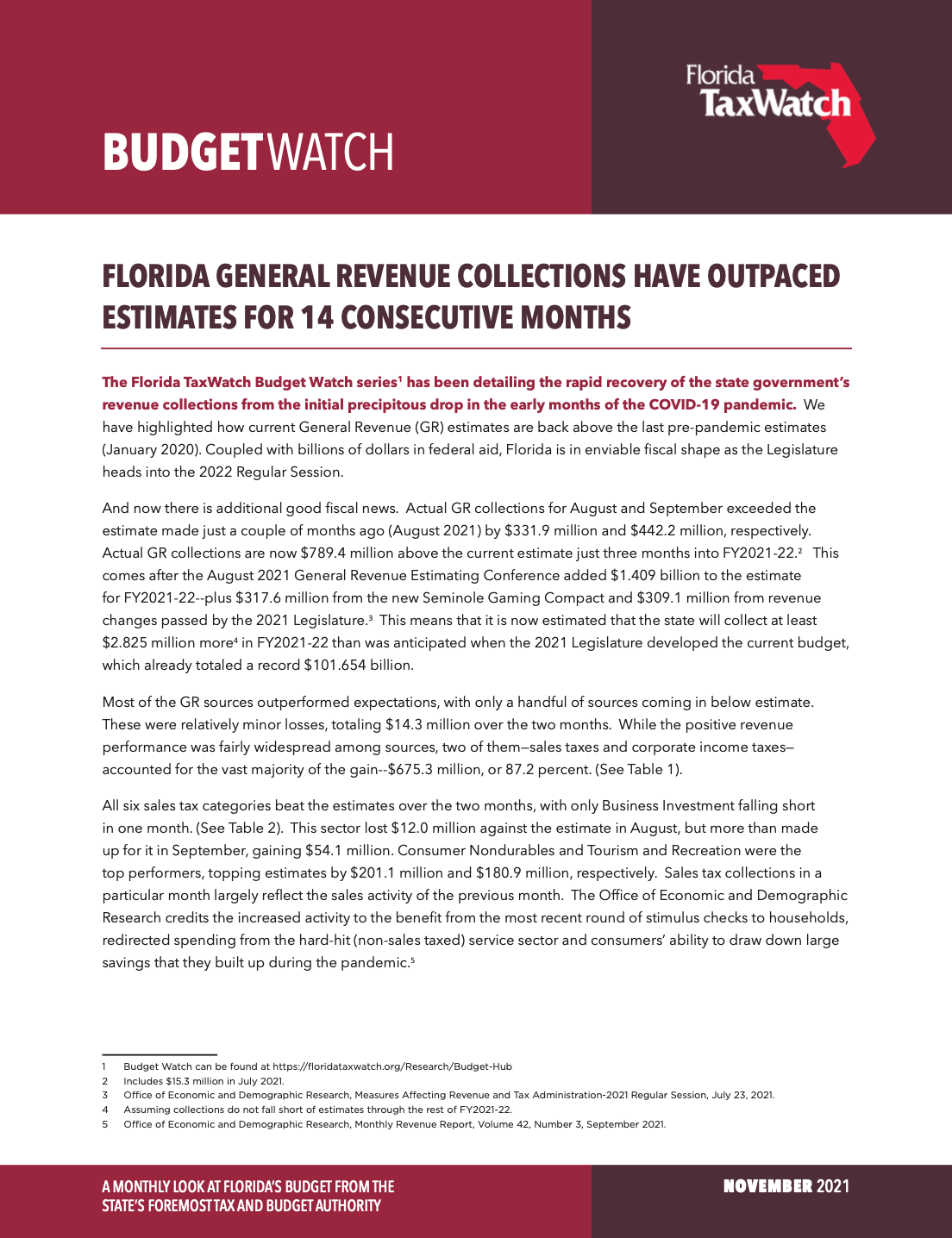Budget Watch - FLORIDA GENERAL REVENUE COLLECTIONS HAVE OUTPACED ESTIMATES FOR 14 CONSECUTIVE MONTHS

The Florida TaxWatch Budget Watch series1 has been detailing the rapid recovery of the state government’s revenue collections from the initial precipitous drop in the early months of the COVID-19 pandemic. We have highlighted how current General Revenue (GR) estimates are back above the last pre-pandemic estimates (January 2020). Coupled with billions of dollars in federal aid, Florida is in enviable fiscal shape as the Legislature heads into the 2022 Regular Session.
And now there is additional good fiscal news. Actual GR collections for August and September exceeded the estimate made just a couple of months ago (August 2021) by $331.9 million and $442.2 million, respectively. Actual GR collections are now $789.4 million above the current estimate just three months into FY2021-22.2 This comes after the August 2021 General Revenue Estimating Conference added $1.409 billion to the estimate for FY2021-22--plus $317.6 million from the new Seminole Gaming Compact and $309.1 million from revenue changes passed by the 2021 Legislature.3 This means that it is now estimated that the state will collect at least $2.825 million more4 in FY2021-22 than was anticipated when the 2021 Legislature developed the current budget, which already totaled a record $101.654 billion.
Most of the GR sources outperformed expectations, with only a handful of sources coming in below estimate. These were relatively minor losses, totaling $14.3 million over the two months. While the positive revenue performance was fairly widespread among sources, two of them—sales taxes and corporate income taxes— accounted for the vast majority of the gain--$675.3 million, or 87.2 percent. (See Table 1)
All six sales tax categories beat the estimates over the two months, with only Business Investment falling short in one month. (See Table 2). This sector lost $12.0 million against the estimate in August, but more than made up for it in September, gaining $54.1 million. Consumer Nondurables and Tourism and Recreation were the top performers, topping estimates by $201.1 million and $180.9 million, respectively. Sales tax collections in a particular month largely reflect the sales activity of the previous month. The Office of Economic and Demographic Research credits the increased activity to the benefit from the most recent round of stimulus checks to households, redirected spending from the hard-hit (non-sales taxed) service sector and consumers’ ability to draw down large savings that they built up during the pandemic.
Documents to download
-
Nov21-BW(.pdf, 219.25 KB) - 1155 download(s)